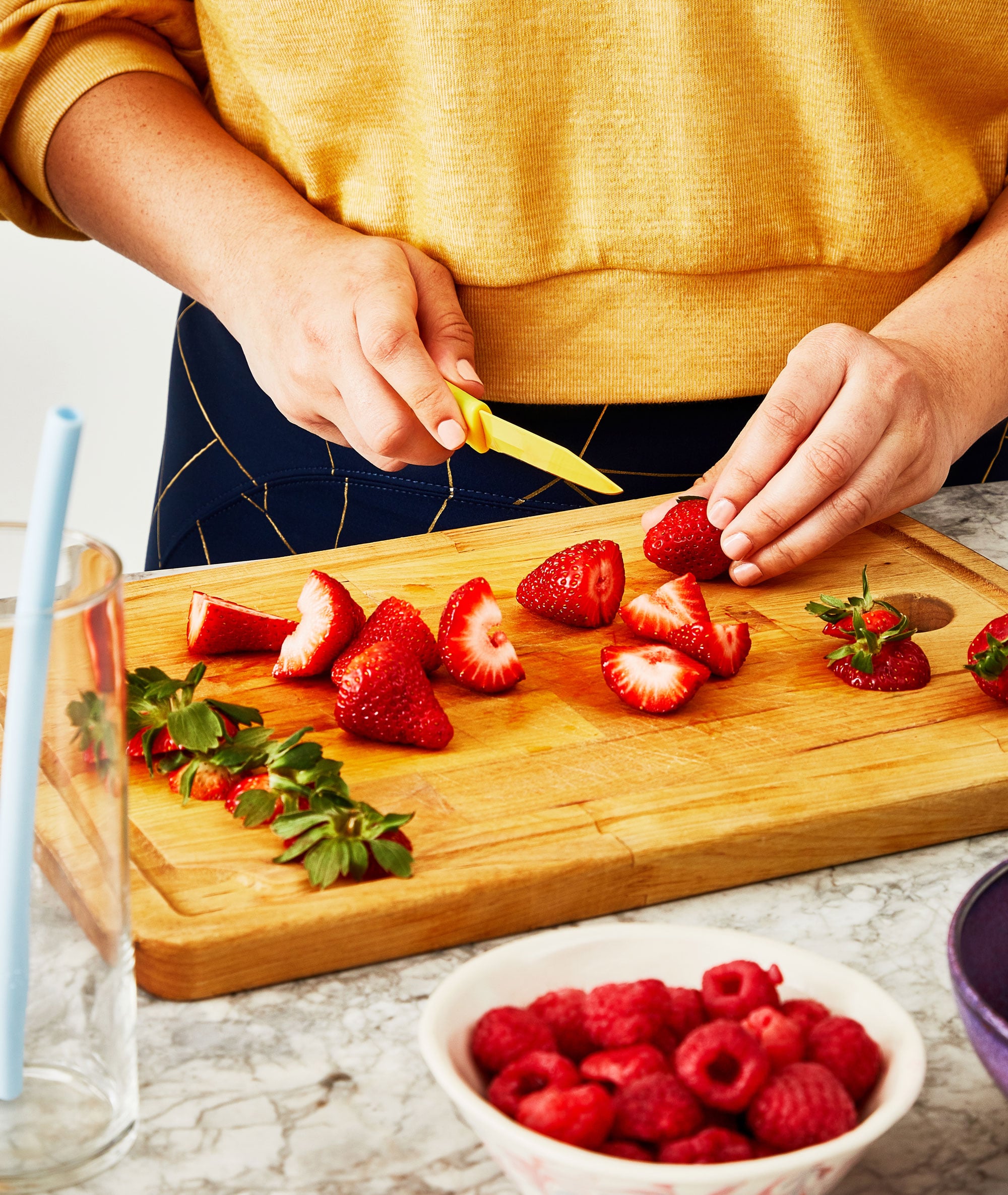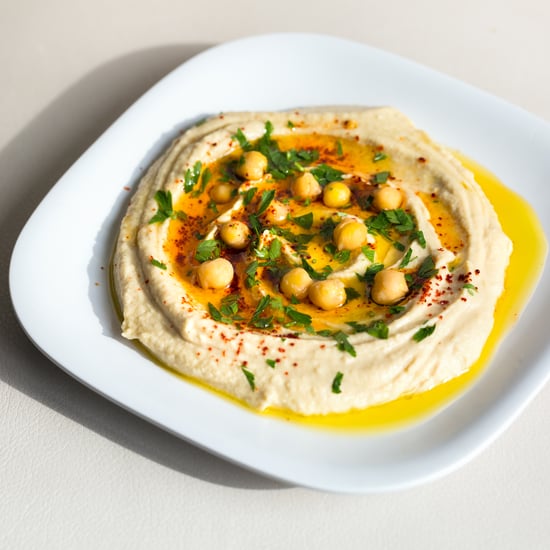How to Avoid Bloating After Eating Fruit
Fruit Used to Make Me Bloated, Until I Started Following These Experts' Advice

I've been following the nutritarian lifestyle for over two months, which is a whole-food, plant-based diet that focuses on nutrient-dense foods. I've been feeling amazing eating so many greens, beans, veggies, seeds, and whole grains, but eating the recommended minimum of four fruits per day was causing me painful cramps and bloating.
New York-based internist and gastroenterologist Niket Sonpal, MD, said bloating isn't cause for alarm or worry, unless you're feeling abdominal pain as a result of eating fruit or it's making preexisting digestive conditions, like IBS, worse.
Why Does Fruit Cause Bloating?
Fruits contain natural sugars, including fructose and sorbitol, which can be difficult for people to digest, explained registered dietitian Carlie Saint-Laurent Beaucejour, MS, LDN, known as @mindfuleatingdietitian on Instagram. These poorly absorbed sugars pass through the small intestine and into the colon, where they are fermented by colonic bacteria to produce increased gas, explained gastroenterologist Kristen Lee, MD.
Fruit also contains another substance called pectin, an indigestible soluble fibre. Although the fibre in fruit can help relieve constipation, it can cause bloating in some people. Dr. Lee added that fruit offers antioxidants and vitamins, so you don't want to avoid it altogether, if possible.
Which Fruits Are More Likely to Cause Bloating?
Some fruits contain higher amounts of fructose, which can result in bloating, explained Saint-Laurent Beaucejour. These include apples, very ripe black-speckled bananas (due to the higher pectin content compared to unripe bananas), plums, grapes, dried fruits, cherries, pears, mango, nectarines, apricots, pineapples, and pomegranates. Fruits that are high in FODMAPS may also cause bloating for some, said registered dietitian Jessie Wong, who specialises in FODMAP diets and helping people with IBS. This includes many of the fruits on this list, as well as prunes, avocados, and watermelons.
Which Fruits Are Least Likely to Cause Bloating?
Fruits lower in fructose may be less likely to cause bloating, said Dr. Lee, including strawberries, blueberries, oranges, grapes, pineapples, and kiwis. Wong added that low-FODMAP fruits are also good choices such as dragonfruits, papayas, tangerines, clementines, and bananas that don't have black spots.
How to Avoid Bloating After Eating Fruit
Aside from limiting or avoiding fruits that are high in fructose, here are some tips to help prevent bloating after eating fruit:
- Keep a food journal: Writing down all the foods you eat (not just fruit) and how you feel in regard to bloating can help you discover which fruits (or other foods) may be the culprit so you can focus on the fruits that are easiest to digest. I found out that sadly, pears are a no-no for me.
- Eat less fruit: Dr. Sonpal said there's no reason to avoid apples and bananas altogether! He said to monitor the amount of fruit you are eating, and Dr. Lee agreed, saying you can even start with half an apple and "assess how much you can digest before the symptoms from fermentation affect you."
- Allow time between eating: It may be beneficial to allow at least two hours between meals, snacks, and other fruits, Saint-Laurent Beaucejour said.
- Peel fruit: Even something as simple as peeling a fruit like an apple, pear, or peach can make it more easily digestible since the skin is so fibre-rich, Wong said.
- Put fruit in a smoothie: Mechanically grinding up fruit in a smoothie definitely helps with bloating, Wong explained, since it "reduces digestion time, hence reduces bloating time."
- Eat cooked fruit: "Cooking fruit breaks down some of its fibre, which can lead to less bloating and makes it easier to digest," Dr. Lee said. Try cooking fruits like bananas, apples, or berries in oatmeal — this was key for me!
- Eat fruit alone: While choosing from the less-bloating fruits mentioned above can help, Wong said, eating your fruits alone can be beneficial. Or try pairing your fruit with a protein like nuts. I found eating high-FODMAP fruits like speckled bananas right after dinner caused me bloating, because as Wong explained, the sugar ferments.
- Limit dried fruit: "Dried fruits are convenient, healthy snacks, but they are concentrated with sugar and fibre, which lead to more gas production during digestion," Dr. Lee said. A few raisins on your salad, a couple medjool dates, dried mango, or a small piece of homemade fruit and nut bar might be OK on your tummy, but eating big servings could be the culprit of bloating.
- Exercise: Regular physical activity can help prevent or relieve bloating, Dr. Sonpal said.
- Pair fruits with foods that contain probiotics: Fruits contain prebiotics, which help feed the good bacteria in our gut. Saint-Laurent Beaucejour explained that pairing fruit with foods that have probiotics like yoghurt (dairy-free if you're avoiding milk) or sauerkraut offers good bacteria for the gut to help reduce bloat, enhancing the probiotic effects.
If you limit or avoid fruit and the discomfort continues, Dr. Sonpal said to make sure to speak with your primary doctor or gastroenterologist to determine what foods or lifestyle choices could be causing this uncomfortable issue. You definitely shouldn't live in pain or discomfort!







